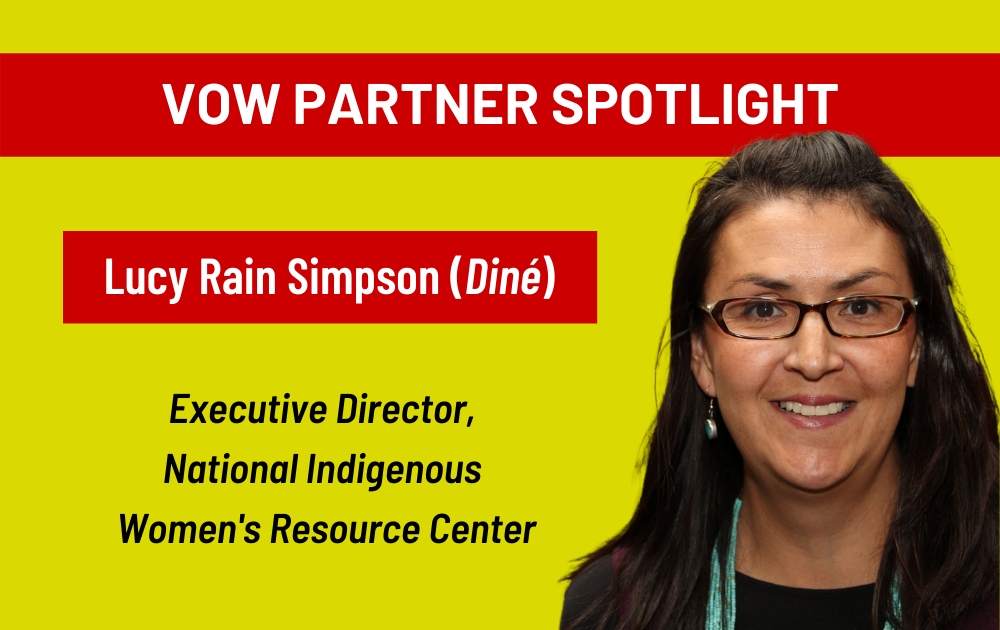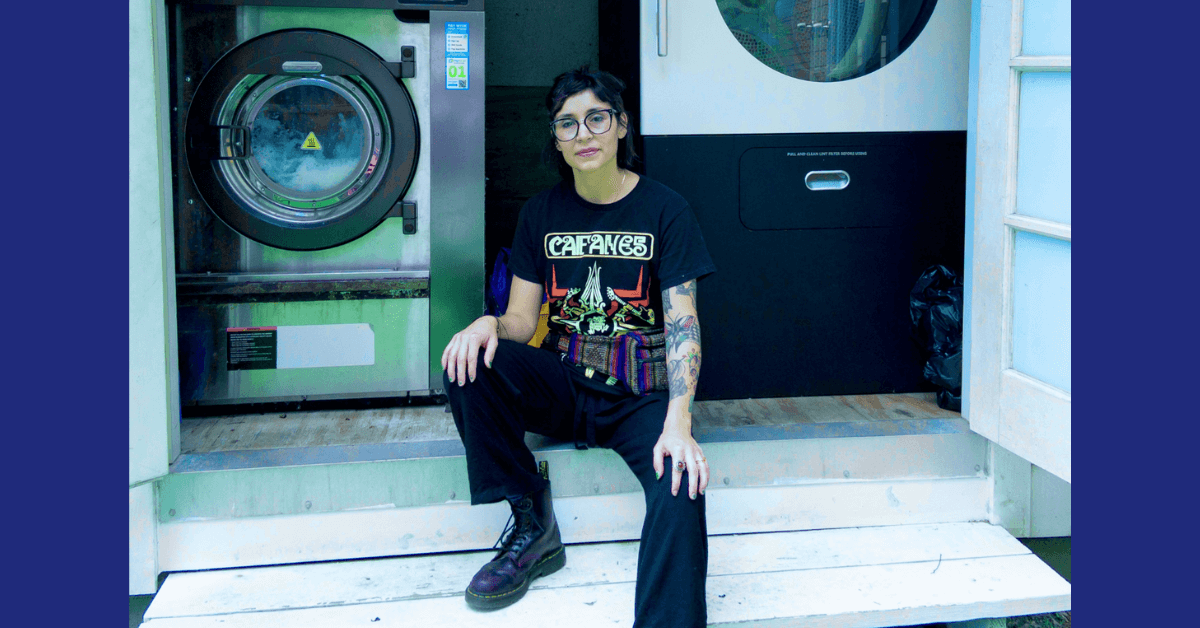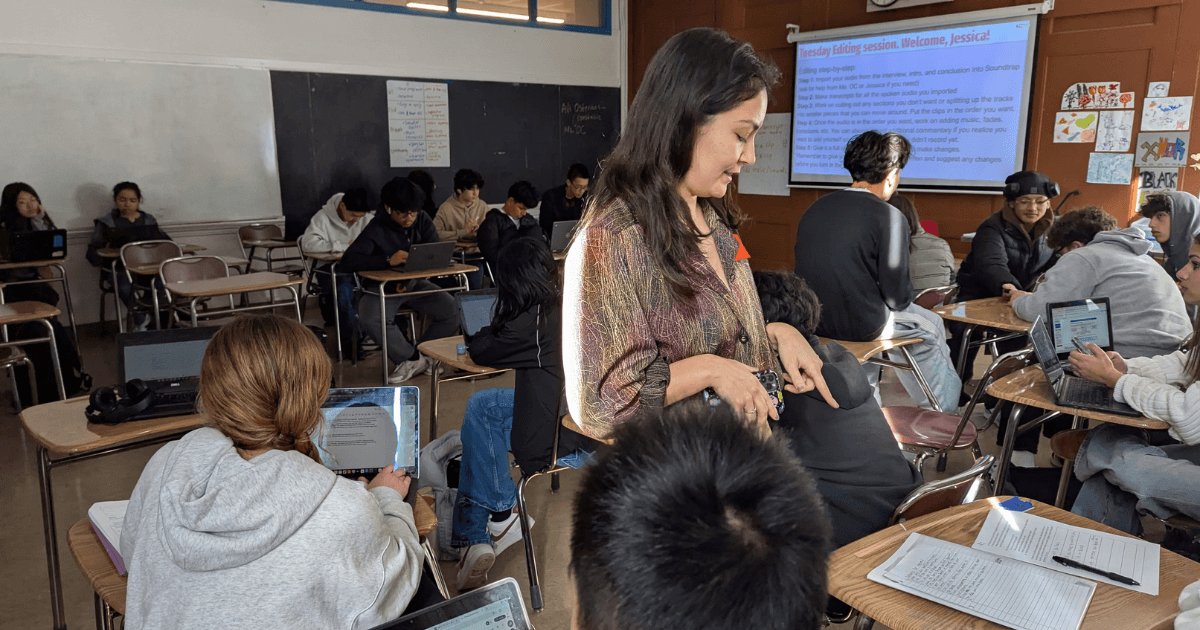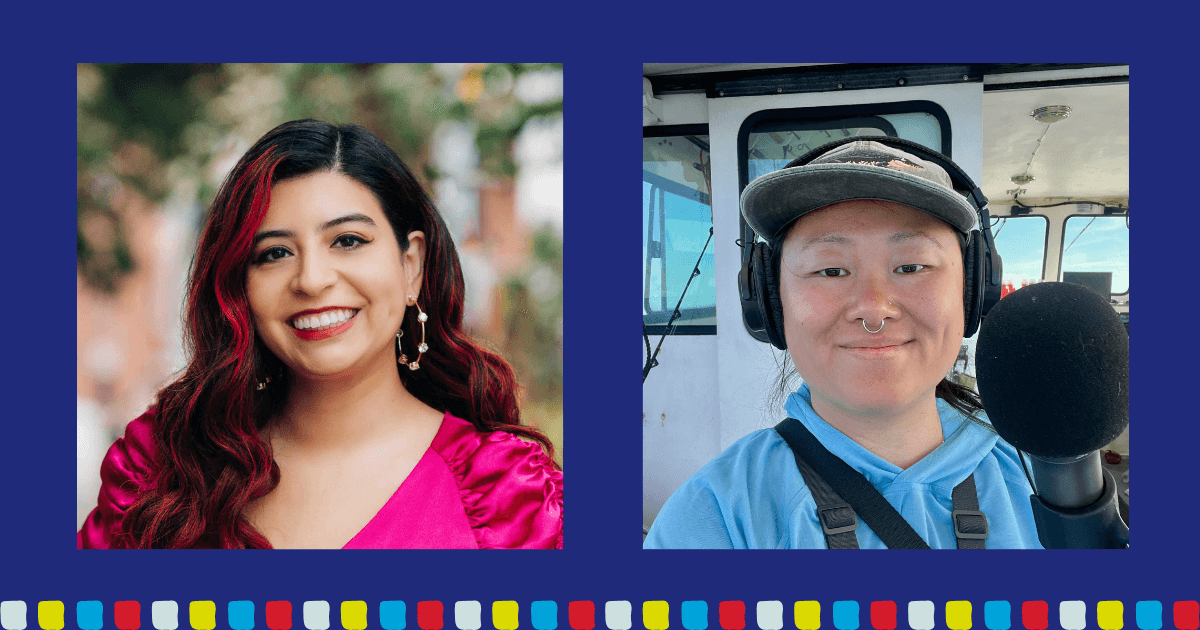
The National Indigenous Women’s Resource Center (NIWRC) is a Native-led nonprofit organization dedicated to ending violence against Native women and children. The NIWRC provides national leadership in ending gender-based violence in tribal communities by lifting up the collective voices of grassroots advocates and offering culturally grounded resources, technical assistance and training, and policy development to strengthen tribal sovereignty.
For International Day for the Elimination of Violence Against Women, Voice of Witness connected with NIWRC Executive Director Lucy Rain Simpson (Diné) about how the pandemic has impacted their work and how the organization is adapting.
VOW: How has the COVID-19 pandemic impacted communities that the National Indigenous Women’s Resource Center serves?
NIWRC: The past several months has certainly been a time of deep concern and uncertainty. Tribes were left reeling from the first wave of cases last spring, and several tribes declared states of emergency pointing to the lack of personal protection equipment (PPE), health care providers to treat patients, and critical resources to address the crisis. In attempts to mitigate the virus’ spread, tribal leaders had to determine which staff to keep as ‘essential workers,” which in some regions left a patchwork of tribal advocates, victim service providers, and shelters to respond to victims, who we now know face an escalated risk of violence due to self-isolation and stay-at-home orders.
Some tribal providers transitioned advocacy staff to telework to comply with social distancing recommendations while navigating significant challenges such as reduced hours or shifts, lack of internet access, childcare due to school closures, lack of transportation infrastructure, and other issues.
VOW: How is NIWRC addressing these needs, and what challenges are tribal communities and advocates facing in your efforts to support the safety of Indigenous women and children?
In the spring, NIWRC organized a series of virtual discussions concerning how tribes and Native advocates continue to respond to domestic violence and gender-based violence given the additional urgent complications of COVID-19. We found that most tribal providers, particularly in rural America, are not equipped to offer support remotely due to limited internet and cell phone service infrastructure. Because of the impact of COVID-19 on tribal economies, some tribes have also been forced to furlough victim services program staff.
Another serious concern shared by tribal victim services providers, courts, police, and other tribal first responders is the lack of PPE. As public health restrictions increase and fluctuate, chronic and compound stress is also placing an overwhelming burden on tribal victim services providers, law enforcement, medical facilities and tribal courts. We know crimes continue to be committed, yet tribal court operations have been substantially curtailed to help keep the public and tribal employees safe during the COVID-19 pandemic.
There’s also the impact on shelters in tribal communities. Across the country, tribes and villages depend on “safe homes” to supplement the lack of safe housing in order to safely shelter victims of domestic violence; however, with the threat COVID-19, those homes are not able to provide the shelter they otherwise would have. Currently, there are only 42 tribal shelters across the country and the existing shelter and victim services programs are further challenged in trying to isolate victims who may be coming into shelter since most of the facilities are already overcrowded. In Alaska and other rural tribal communities, shelter shortage is exacerbated by travel restrictions.
Across tribal communities, service providers and tribal governments worked creatively to meet these challenges. NIWRC joined our sister organizations in taking action on a national policy level to advocate on behalf of Indian tribes and tribal providers in accessing critically needed federal resources for culturally-based services for victims and survivors of violence. It is critical that their needs were and are continually considered in any COVID-19 relief packages.
VOW: Why is uplifting community voices important in your work? What role does storytelling and first-person testimonies play?
NIWRC: The voices of Indigenous people in North America have been silenced by colonizers since first contact. As a Native-led advocacy organization dedicated to ending violence against Native women and children, we recognize the impact of silencing the voices of those in our communities as an attempt at erasing our lived experiences, our cultures, and the rights to safety for Native victims of violence in particular, which are predominantly women and girls in tribal communities. It is a crucial part of our work to lift-up the voices of our sisters, mothers, grandmothers, and daughters, as their bodies and spirits carry the trauma of the violence that has been inflicted on them. Their stories, the truth they speak, holds value.
Lifting-up the stories and experiences of Indigenous women and girls is a key component of our work here at NIWRC, whether it’s gathering testimony from tribes and tribal providers on legislation that directly impacts the safety of Native women, offering a safe space to survivors through StrongHearts Native Helpline, passing the mic to a sister advocate to share knowledge on one of our webinars, or highlighting the voices and work of grassroots women across our social media pages and publications like our Restoration magazine. Native voices deserve to be uplifted, centered and heard—it’s past time that our society normalizes this practice. Indigenous voices have power and telling our stories is our rallying cry. Speaking our truth is also part of our healing, as the silencing of Indigenous peoples has been ongoing for generations.
VOW: In what ways have Native survivor voices been ignored historically? How does this silencing continue today?
NIWRC: The very beginnings of America are rooted in colonization, which left an ongoing legacy of oppression and violence. Indigenous peoples, specifically women, have, for centuries, suffered genocide legitimized under U.S. federal law and policies. The theft of tribal lands and resources with government sanctioned massacres of women and children and the criminalization of Indigenous spirituality were normalized as necessary government actions against Indigenous peoples and their Nations. There has been an ongoing effort to terminate Indigenous people, and strategically attacking Native women was seen as the way to do that, but through our resilience, we have survived. We are still here.
The crisis of missing and murdered Indigenous women and girls (MMIWG) is one example of the ongoing social tolerance for violence against Indigenous peoples. Native women and girls continue to be taken from us at an alarming rate; in some tribal communities, Native women are murdered at more than 10 times the national average. Yet their stories rarely, if at all, make the news, and many cases remain unsolved—leaving their families without resolve.
As Native people, we know the crisis of MMIWG is linked to the colonization of Indian Nations, lands, and peoples. The dehumanization, degradation, and normalization of violence against Native women sets the cultural foundation for this ongoing violence and silencing to continue.
VOW: What are some direct actions that readers (including non-Indigenous people) can take to support movements to end the crisis of MMIWG?
NIWRC: Here are some actions to get started:
- Watch our webinar on Missing and Murdered Indigenous Women and Girls to understand the root causes of this crisis.
- Elevate information calling for the end of violence against Native women from our Facebook page.
- Subscribe to NIWRC’s Restoration of Sovereignty and Safety for Native Women magazine, which covers current issues relating to ending violence against Native women, tribal sovereignty and MMIWG.
- Explore the MMIWG toolkit for families and communities and share it with your networks.
- Join a virtual activity for MMIWG awareness, such as our virtual medicine run/walk this November 26-29, 2020.
- Donate to NIWRC in support of the work to end violence against Native women and MMIWG.
- Stay connected with NIWRC to join our May 5th National Day of Awareness for MMIWG events next year.
Watch the recording of Justice for Indigenous Women and Girls, the recent Voice of Witness event in partnership with NIWRC.




